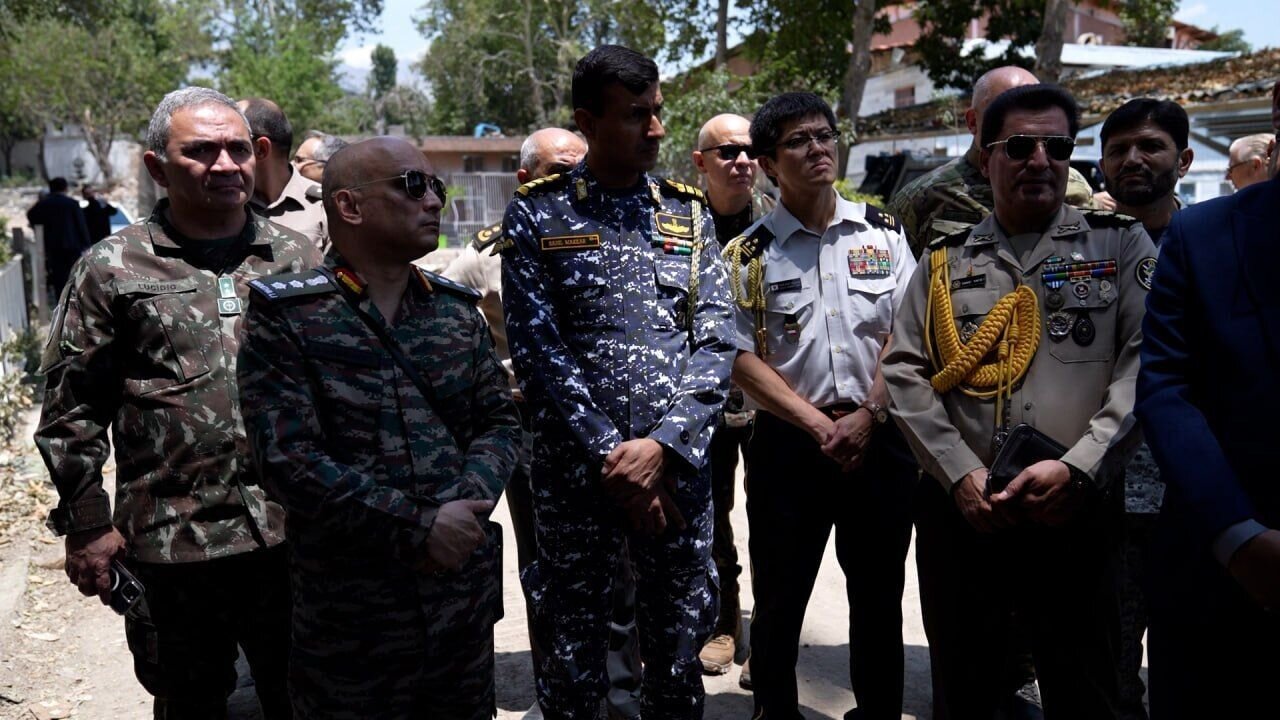Foreign military attachés visit Evin Prison following Israeli strike

TEHRAN — A delegation of military attachés from 20 foreign embassies stationed in Tehran visited Evin Prison on Tuesday, touring the sections recently damaged during an Israeli missile attack.
The visit was organized to provide firsthand insight into what Iranian officials have described as a clear example of state terrorism and unlawful aggression against non-military sites. During the tour, military representatives were briefed on the extent of the destruction and the nature of the Israeli strike, which targeted facilities housing unarmed detainees and administrative infrastructure.
Officials emphasized that the attack on Evin Prison — widely known for detaining a mix of security, political, and white-collar prisoners — constituted a violation of international law, especially given that the facility does not serve any offensive military purpose.
Representatives from several countries, including the Netherlands, Brazil, Pakistan, Kazakhstan, and Oman, took part in the visit. The attachés were shown areas of structural damage and provided with reports outlining the broader impact of Israel’s recent strikes on civilian infrastructure across Iran.
On June 23, as part of its broader aggression against Iran, the Israeli regime launched an airstrike on Evin Prison, killing 79 people, including prison staff, soldiers, inmates, visiting family members, and civilians living nearby. The attack, which occurred during visitation hours, also targeted the prison’s medical center and nearby units.
Judiciary spokesperson Asghar Jahangir described the strike as a “full-scale war crime,” noting that it caused severe physical and financial damage to surrounding neighborhoods and occurred when prisoners were with their families and social workers.
Following the incident, Iranian authorities moved the inmates to other detention facilities across Tehran Province to ensure their safety.
The Evin Prison airstrike was part of a broader Israeli offensive that began on June 13, during which the regime assassinated several senior Iranian military commanders, nuclear scientists, and civilians. Days later, the United States joined the escalation by bombing three Iranian nuclear sites—an act condemned by Tehran as a grave violation of the UN Charter, international law, and the Non-Proliferation Treaty (NPT).
In response, Iran’s armed forces launched precision strikes on key targets inside the Israeli-occupied territories and the al-Udeid U.S. airbase in Qatar—the largest American military installation in West Asia.
On June 24, Iran declared that its retaliatory operations had successfully halted the illegal attacks, reinforcing its deterrence and sending a clear message to both Tel Aviv and Washington.
Leave a Comment